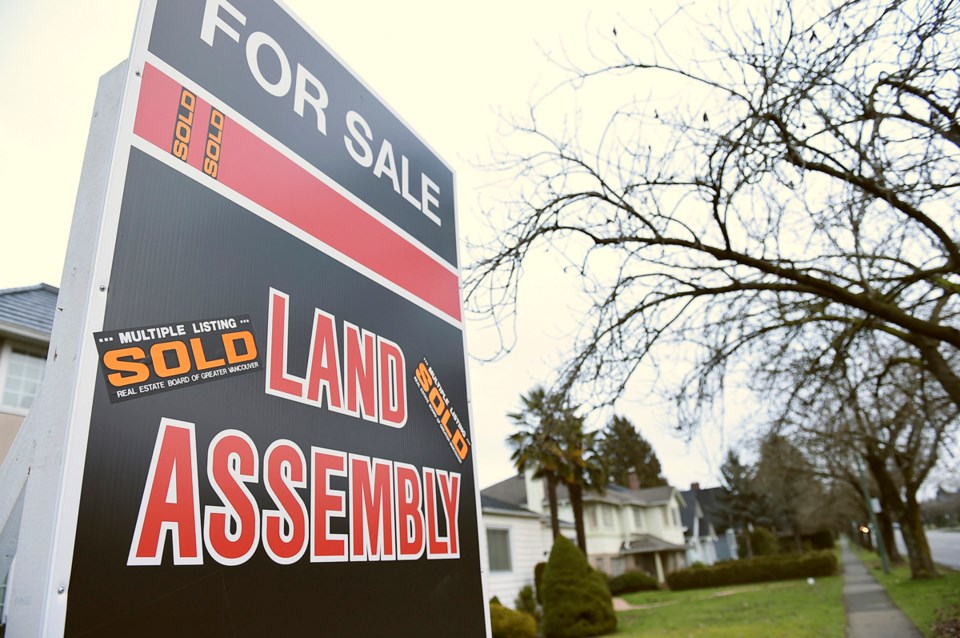Vancouver’s latest gamble, a “reset” to its housing policy, comes in the face of what has been an obvious failure. The notion aggressively pursued by Mayor Gregor Robertson and his Vision-dominated council — that by dramatically increasing housing supply, prices would drop or at least stabilize — has proven disastrously wrong. Nor is this the only jurisdiction where this has been experienced.
Instead it has led to the “hollowing out” of the city causing middle income folks and millennials entering the workforce to flee to the suburbs or farther. While city staff say Vancouver’s population is growing, in single-family neighbourhoods it is declining. The diversity of incomes and occupations that have made Vancouver the city it is, or at least was, are at great risk.
Until recently, one could point the finger at a lack of participation by both the province and the federal government in dealing with what is generally accepted as a housing affordability crisis. (Witness the fact that Christy Clark took an electoral beating in Metro Vancouver in no small part because of her inaction on the affordable housing front. Even her knee-jerk foreign ownership tax is having debatable benefits.)
With a new government in Victoria and a relatively new Liberal government federally committed to re-investing in a National Housing Strategy, there is hope.
But Robertson and his council intend to do more than just sit back and wait. Their political fortunes depend on it, to say nothing of the very nature of the city.
The mayor, who gives the impression he’ll run for yet another term, is vulnerable on this issue. There seems to be a growing sense, even shared among some Vision councillors, that they are past their best-before date; a number who have served for more than a decade are looking at other options. Geoff Meggs was the first and likely won’t be the last to find opportunities elsewhere.
The housing “reset” was described in two sessions by staff to council this past week (sessions I sat through) and simply put it is this: development will be approved and targeted to “income bands,” as opposed to simply being broken down as social housing and affordable market housing and left to the market to decide what is “affordable.”
Rents and sales prices will have to be proven “affordable” for people in specific income ranges up to a household income of $150,000 before the development is approved. There will also be a bias towards rental housing to maintain the approximately 50-50 balance between rental and home ownership that already exists. To make this work, the city will offer the usual incentives including density bonuses, reduced parking requirement and new strategies to increase infill housing in single-family neighbourhoods.
Tying development to income bands is new here, but it has been used for decades south of the border; it is a basic requirement when it comes to federal funding for housing.
And not coincidentally, two new Vancouver hires who hail from the United States are intimately familiar with this strategy; they are the two senior bureaucrats who have the lead roles in dealing with housing. They came on board when this plan was in its infancy a year ago and it seems were hired with this significant shift in direction in mind.
Gil Kelley, the head of planning, gained his experience in San Francisco, Oakland and Portland. Kaye Krishna the head of development services, saw this program at work in New York.
The “reset” comes with a couple of minor companion pieces that have already been rolled out: an “empty home tax” and restrictions of short-term rentals, which has led my colleague Michael Geller to conclude there will be a rash of tax evasion as a result — fake leases and the like among people with multiple dwellings, for starters. But that seems hardly enough reason to back off that or the entire “reset” project.
Beyond the voluminous details of this “reset,” the question we are faced with is this: Can we prevent Vancouver from becoming a hollowed-out place that increasingly lacks diversity in every sense? Be cynical about the possibilities for success if you like.
But more than Vision’s fortunes, this is the gamble we all have a stake in.
@allengarr



